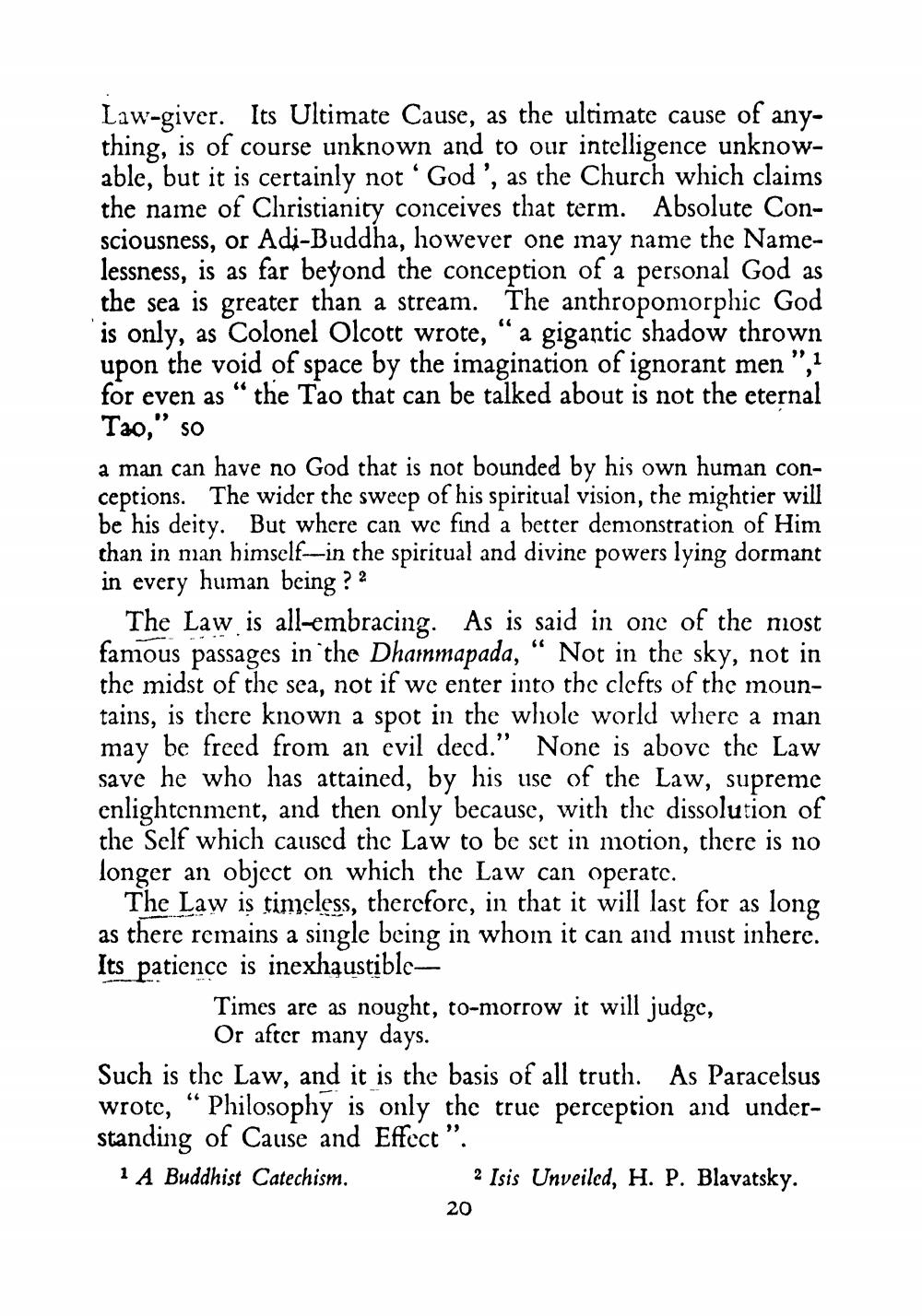________________
Law-giver. Its Ultimate Cause, as the ultimate cause of anything, is of course unknown and to our intelligence unknowable, but it is certainly not ‘God', as the Church which claims the name of Christianity conceives that term. Absolute Consciousness, or Adi-Buddha, however one may name the Namelessness, is as far beyond the conception of a personal God as the sea is greater than a stream. The anthropomorphic God is only, as Colonel Olcott wrote, "a gigantic shadow thrown upon the void of space by the imagination of ignorant men",1 for even as “the Tao that can be talked about is not the eternal T20," so a man can have no God that is not bounded by his own human conceptions. The wider the sweep of his spiritual vision, the mightier will be his deity. But where can we find a better demonstration of Him than in man himself-in the spiritual and divine powers lying dormant in every human being ? 2
The Law is all-embracing. As is said in one of the most famous passages in the Dhammapada, “ Not in the sky, not in the midst of the sea, not if we enter into the clefts of the mountains, is there known a spot in the whole world where a man may be freed from an evil decd.” None is above the Law save he who has attained, by his use of the Law, supreme enlightenment, and then only because, with the dissolution of the Self which caused the Law to be set in motion, there is no longer an object on which the Law can operatc.
The Law is timeless, therefore, in that it will last for as long as there remains a single being in whoin it can and must inhere. Its patience is inexhaustible
Times are as nought, to-morrow it will judge,
Or after many days. Such is the Law, and it is the basis of all truth. As Paracelsus wrote, “ Philosophy is only the true perception and understanding of Cause and Effect". 1 A Buddhist Catechism.
2 Isis Unveiled, H. P. Blavatsky.
20




